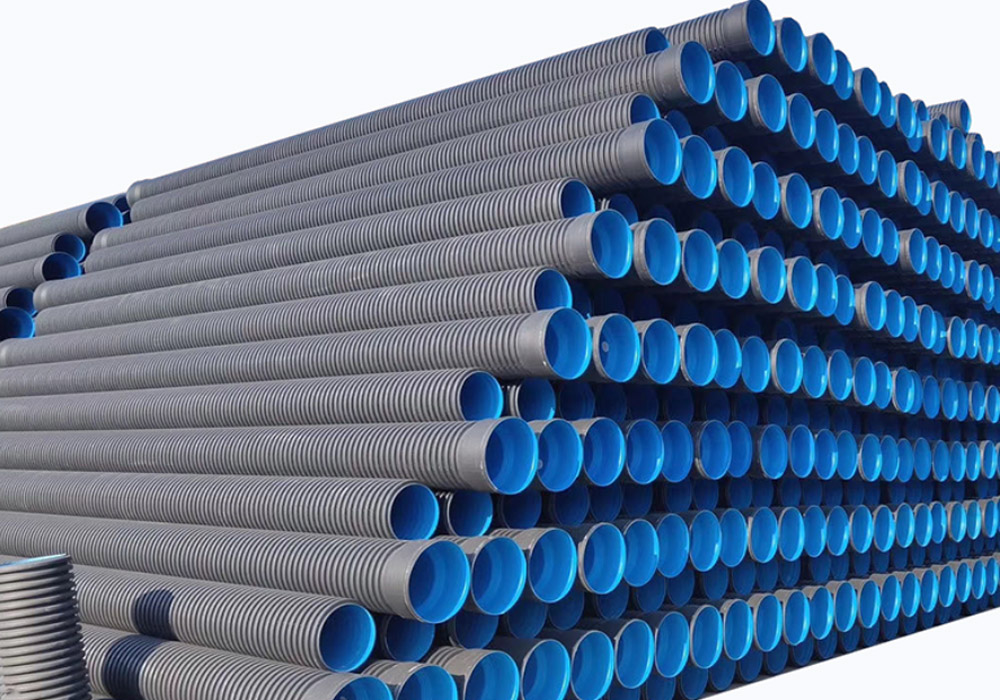Water conservation and efficient irrigation are crucial in modern agriculture. One of the most effective tools for achieving this is the cylindrical drip pipe, a product offered by renowned brands like JS PIPE. This article explores the construction, advantages, and diverse applications of cylindrical drip pipes, highlighting why they are indispensable in sustainable farming practices.
Construction of Cylindrical Drip Pipe
A cylindrical drip pipe is a specialized type of drip irrigation pipe designed to deliver water directly to the root zone of plants. The construction of these pipes involves several key components:
- High-Quality Polyethylene (PE) Material: Cylindrical drip pipes are typically made from durable, UV-resistant polyethylene. This material ensures the pipes can withstand harsh environmental conditions and have a long lifespan.
- Integrated Drippers: These pipes have uniformly spaced cylindrical drippers embedded within them. The drippers are designed to regulate water flow, ensuring a consistent and controlled release of water.
- Pressure Compensation: Many cylindrical drip pipes feature pressure-compensating drippers. This technology ensures that each plant receives the same amount of water, regardless of its location along the pipe or the terrain’s slope.
- Filtration System: To prevent clogging, cylindrical drip pipes often include an integrated filtration system. This helps to filter out debris and impurities from the water, maintaining the efficiency of the irrigation system.
JS PIPE, a leading brand in irrigation solutions, incorporates these advanced construction features to deliver high-performance cylindrical drip pipes. For more detailed specifications and to explore their range of products, read more about JS PIPE’s offerings.
Advantages of Cylindrical Drip Pipe
The use of cylindrical drip pipes in irrigation provides numerous benefits:
- Water Efficiency: One of the primary advantages of cylindrical drip pipes is their ability to conserve water. By delivering water directly to the plant roots, evaporation and runoff are minimized, making this system highly efficient compared to traditional irrigation methods.
- Uniform Water Distribution: The pressure-compensating drippers ensure that water is evenly distributed across all plants, promoting uniform growth and reducing the risk of over or under-watering.
- Reduced Labor Costs: Once installed, cylindrical drip pipes require minimal maintenance and reduce the need for manual watering. This leads to significant savings in labor costs over time.
- Versatility: These pipes can be used in a variety of agricultural settings, including open fields, greenhouses, and orchards. They are adaptable to different crops and soil types, making them a versatile irrigation solution.
- Improved Crop Yields: By providing precise and consistent watering, cylindrical drip pipes help optimize plant growth conditions. This often results in improved crop yields and better quality produce.
- Environmental Benefits: The efficient use of water resources and the reduction in fertilizer runoff contribute to environmental sustainability. This irrigation method supports the conservation of natural resources and minimizes the ecological footprint of farming operations.
Applications of Cylindrical Drip Pipe
Cylindrical drip pipes are used in a wide range of applications due to their efficiency and adaptability:
- Agricultural Fields: Farmers use cylindrical drip pipes to irrigate various crops such as vegetables, fruits, and grains. This system is particularly beneficial in areas with limited water resources.
- Greenhouses: In controlled environments like greenhouses, cylindrical drip pipes ensure that each plant receives the precise amount of water needed for optimal growth, enhancing productivity.
- Orchards and Vineyards: For perennial crops like fruit trees and grapevines, cylindrical drip pipes provide consistent hydration to the root zone, which is crucial for their development and fruit production.
- Landscape Irrigation: Beyond agriculture, cylindrical drip pipes are also used in landscaping to maintain gardens, lawns, and parks. They help conserve water while keeping the landscape lush and green.
- Nurseries: In plant nurseries, these pipes facilitate the efficient watering of seedlings and young plants, ensuring healthy growth and reducing water wastage.
JS PIPE’s cylindrical drip pipes are engineered to meet the diverse needs of these applications, offering reliable and efficient irrigation solutions. To discover more about how JS PIPE can enhance your irrigation system, read more on their product offerings and specifications.
In conclusion, cylindrical drip pipes represent a significant advancement in irrigation technology, combining efficient water use with reliable performance. With the construction innovations and numerous advantages they offer, cylindrical drip pipes from JS PIPE are an excellent choice for modern agricultural practices and beyond.
Keep an eye for more news & updates on Gossips!




